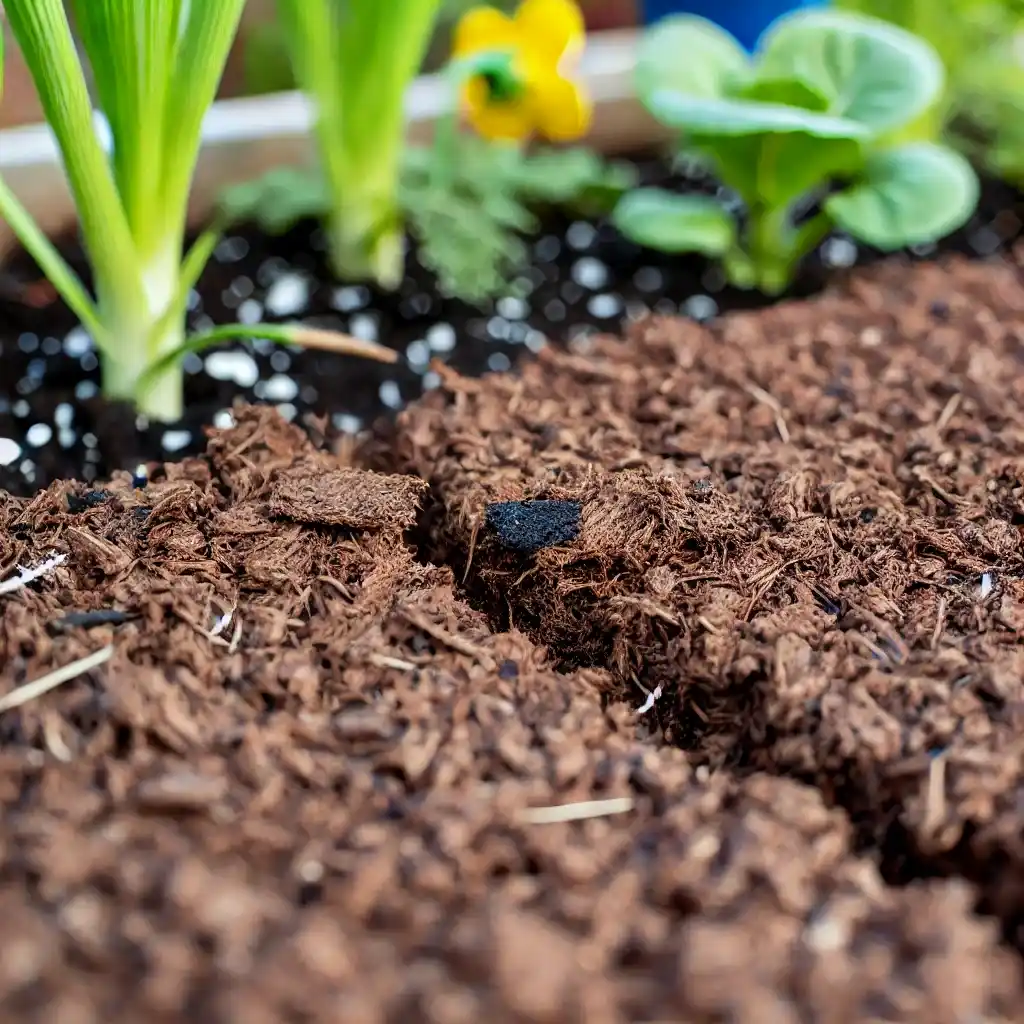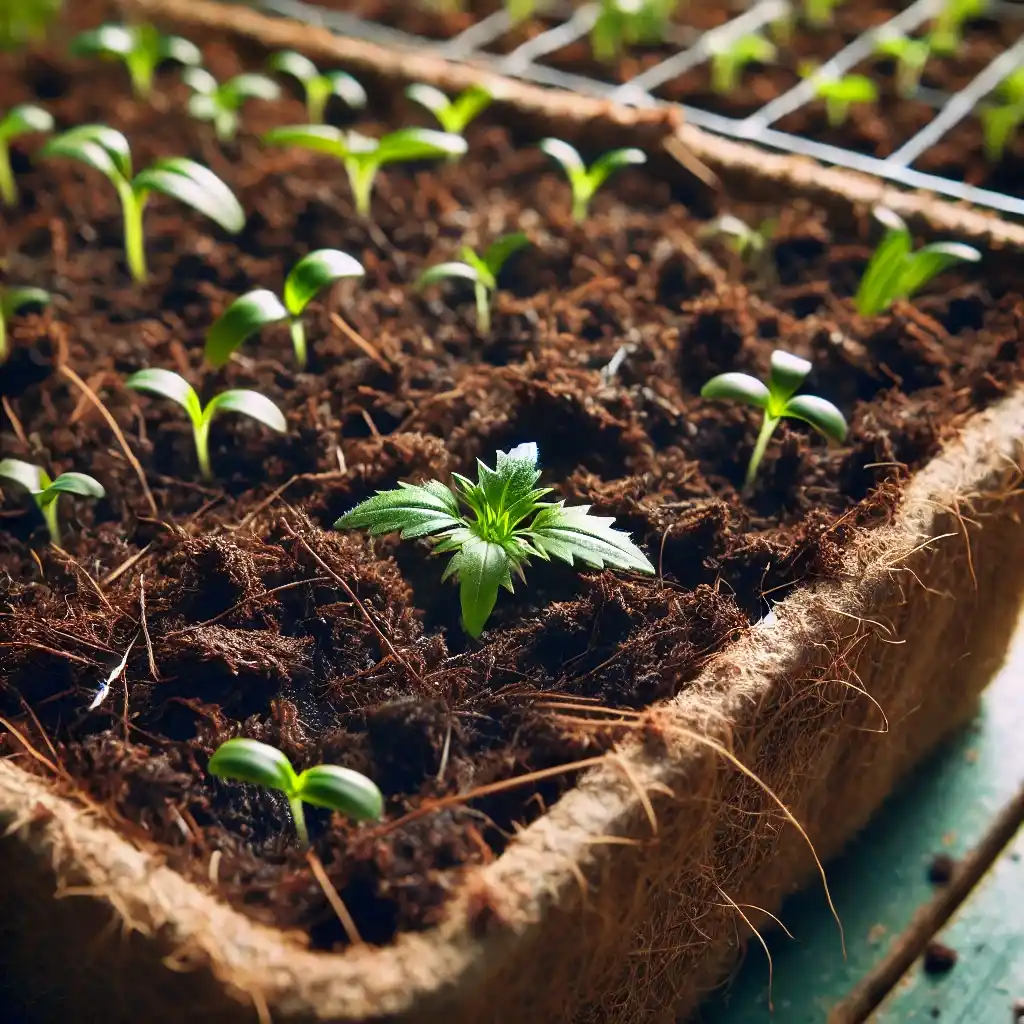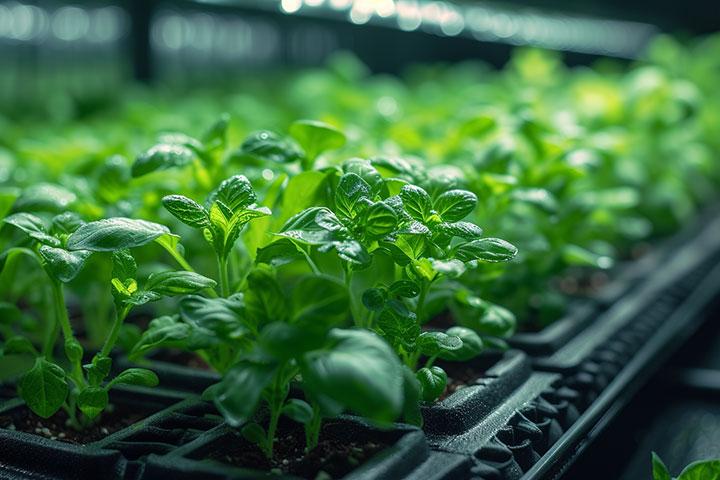Sustainable Gardening in Tamil Nadu
Tamil Nadu, with its deep agricultural roots and vibrant gardening communities, strongly values sustainable practices to maintain soil health. Recently, coco pith has become a favorite choice for gardeners who want eco-friendly alternatives to conventional soil amendments. Made from the fibers of coconut husks, cocopeat stands out for its impressive ability to retain water, improve soil aeration, and naturally break down over time. These qualities make it an ideal option for both seasoned gardeners and those just starting out who want to support sustainable gardening practices.
Benefits of Using Coir pith
- Improved Soil Structure: Organic materials like compost and coco pith improve soil structure by adding organic matter, which enhances water retention, aeration, and nutrient availability.
- Long-Term Fertility: Eco-friendly soil solutions support long-term soil fertility by increasing microbial activity and organic matter, creating a self-sustaining system that minimizes the need for artificial inputs.
- Environmental Protection: Using natural soil amendments reduces the risk of water contamination and protects local ecosystems by minimizing chemical runoff.
- Increased Biodiversity: Eco-friendly practices encourage beneficial microorganisms, insects, and other organisms that contribute to a balanced, resilient soil ecosystem.
- Sustainability: Sustainable soil practices, such as crop rotation, composting, and the use of natural amendments like coco pith, help conserve resources and are renewable, making them suitable for long-term use.
- Health Benefits: Eliminating synthetic chemicals from the gardening process reduces health risks for farmers, gardeners, and consumers who may be exposed to pesticide residues.
This versatility is a significant reason why cocopeat distributors across Tamil Nadu recommend it for various gardening applications.

How Tamil Nadu Cocopeat Suppliers Support Sustainable Gardening
Several coco pith suppliers in Tamil Nadu have committed to sustainable production processes, transforming coconut husk waste into valuable gardening materials. If you’re looking for a reliable cocopeat supplier in Tamil Nadu, sourcing from local manufacturers not only reduces the carbon footprint associated with transportation but also supports the regional economy. Many of these suppliers provide organic, unprocessed coir pith, which is ideal for eco-conscious gardeners dedicated to sustainable practices.
Practical Uses of Cocopeat in Tamil Nadu Gardens
- Soil Amendment: Mix cocopith with garden soil to improve water retention and aeration. This is especially useful for drought-prone areas in Tamil Nadu, where water conservation is a priority.
- Seed Starting Medium: Cocopeat’s fine, crumbly texture makes it ideal for germinating seeds. Tamil Nadu gardeners find it particularly useful for starting vegetable and flower seeds indoors.
- Container Gardening: For those practicing container gardening, cocopeat can be combined with other soil components to create a lightweight, well-draining mix.
- Hydroponics: Cocopeat is increasingly used in hydroponic setups, as it provides a stable, water-retentive medium without the need for soil.



Combining Cocopeat with Other Sustainable Soil Solutions
While coco pith is a powerful addition to Tamil Nadu gardens, combining it with other sustainable soil solutions can enhance soil fertility even further:
- Composting: Adding compost to cocopith improves its nutrient profile, creating a balanced soil amendment rich in organic matter.
- Organic Mulching: It can be used alongside other organic mulches, like straw or leaf litter, to retain soil moisture and regulate temperature.
- Green Manure: Growing green manure crops and then turning them into the soil adds organic matter and nitrogen, improving soil health.
Chemical Solutions in Soil Management

Farmers often use chemical solutions like synthetic fertilizers and pesticides to increase crop yields and shield plants from pests and diseases. Although these chemicals can be effective, heavy reliance on them comes with serious drawbacks.
Pros of Chemical Solutions
- Quick Results: Chemical fertilizers and pesticides act quickly, providing plants with an immediate boost in nutrients or defense against pests.
- Higher Crop Yields: Chemical solutions can lead to increased yields in the short term, which is beneficial for farmers looking to maximize their output in a single growing season.
- Easier Application: Many chemical fertilizers and pesticides are easy to apply, especially on a large scale, and they require less labor compared to some organic alternatives.
- Targeted Formulation: Chemical fertilizers are often precisely formulated to provide specific nutrients like nitrogen, phosphorus, and potassium, helping to address particular nutrient deficiencies.
Cons of Chemical Solutions
- Soil Degradation: Over time, continuous use of chemical fertilizers can degrade soil structure, reducing its natural fertility and leading to compaction and erosion.
- Water Pollution: Excessive use of chemicals often leads to runoff, contaminating nearby water bodies with harmful nitrates and phosphates, which can cause issues like algal blooms and harm aquatic life.
- Loss of Microbial Biodiversity: Chemicals can disrupt the natural microbial balance in the soil, leading to a reduction in beneficial bacteria and fungi essential for healthy soil ecology.
- Health Risks: Exposure to certain chemical pesticides can pose health risks to humans, particularly for farmers who handle these chemicals frequently.
- Dependency and Cost: Over time, soil becomes reliant on chemical fertilizers, and farmers may need to increase dosages to maintain yields, leading to higher costs and diminishing returns.
Balancing Chemical and Eco-Friendly Soil Solutions for Sustainable Gardening in Tamil Nadu
Choosing the Right Solution
For gardeners in Tamil Nadu, finding a balance between eco-friendly soil solutions and the practical use of chemical fertilizers can be a smart, sustainable choice. While chemical fertilizers may provide quick boosts in productivity, eco-friendly practices promote lasting soil health, support biodiversity, and enhance sustainability.
In the end, by weighing the pros and cons of each approach, gardeners can make informed decisions that align with their goals, address environmental concerns, and suit their available resources.
Practical Steps and Benefits
Many gardeners and farmers are now thriving with integrated soil management. They combine minimal, targeted chemical use with sustainable practices like composting, crop rotation, and natural soil enhancers like coco pith.
These sustainable soil solutions not only protect Tamil Nadu’s agricultural resources but also pave the way for a healthier, more resilient ecosystem. This approach helps keep soil productive and capable of supporting future generations.
Future of Sustainable Soil Solutions in Tamil Nadu
The rising interest in eco-friendly gardening underscores the need for sustainable soil solutions. As more gardeners see the benefits of locally-sourced, renewable materials, coco pith producers and distributors are becoming vital partners in Tamil Nadu’s sustainable gardening movement. By using natural soil amendments, gardeners can grow healthy, productive gardens while also supporting local eco-friendly businesses.
In short, sustainable soil solutions are not just a trend; they’re a commitment to the health of our land and communities. For gardeners in Tamil Nadu, choosing a reliable cocopeat supplier or manufacturer provides access to quality materials that promote long-term soil health and plant vitality. Adopting cocopeat and other sustainable practices leads Tamil Nadu toward a greener, more resilient future in gardening.

